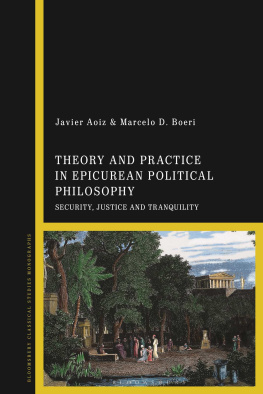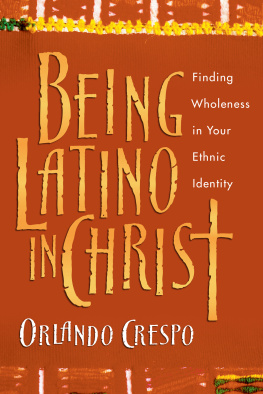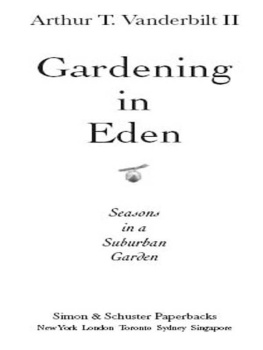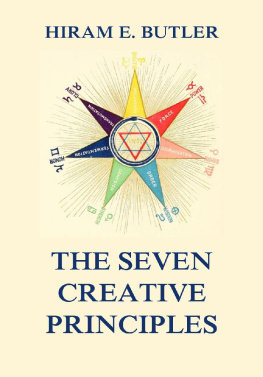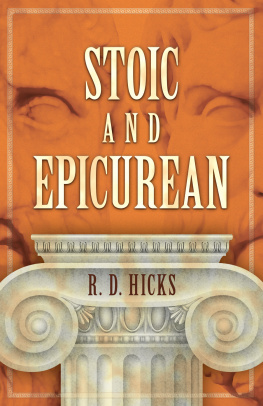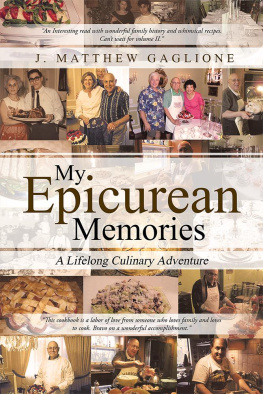Hiram Crespo - Tending the Epicurean Garden
Here you can read online Hiram Crespo - Tending the Epicurean Garden full text of the book (entire story) in english for free. Download pdf and epub, get meaning, cover and reviews about this ebook. year: 2014, publisher: Humanist Press, genre: Religion. Description of the work, (preface) as well as reviews are available. Best literature library LitArk.com created for fans of good reading and offers a wide selection of genres:
Romance novel
Science fiction
Adventure
Detective
Science
History
Home and family
Prose
Art
Politics
Computer
Non-fiction
Religion
Business
Children
Humor
Choose a favorite category and find really read worthwhile books. Enjoy immersion in the world of imagination, feel the emotions of the characters or learn something new for yourself, make an fascinating discovery.

- Book:Tending the Epicurean Garden
- Author:
- Publisher:Humanist Press
- Genre:
- Year:2014
- Rating:3 / 5
- Favourites:Add to favourites
- Your mark:
- 60
- 1
- 2
- 3
- 4
- 5
Tending the Epicurean Garden: summary, description and annotation
We offer to read an annotation, description, summary or preface (depends on what the author of the book "Tending the Epicurean Garden" wrote himself). If you haven't found the necessary information about the book — write in the comments, we will try to find it.
Tending the Epicurean Garden — read online for free the complete book (whole text) full work
Below is the text of the book, divided by pages. System saving the place of the last page read, allows you to conveniently read the book "Tending the Epicurean Garden" online for free, without having to search again every time where you left off. Put a bookmark, and you can go to the page where you finished reading at any time.
Font size:
Interval:
Bookmark:
Tending the
Epicurean
Garden
Hiram Crespo

Copyright 2014 by Hiram Crespo

1777 T Street NW
Washington, DC, 20009
(202) 238-9088
www.humanistpress.com
All rights reserved. No part of this book may be reproduced in whole or in part without written permission from the publisher, except in the case of brief quotations embodied in critical articles and reviews; nor may any part of this book be reprinted or reproduced or utilized in any form or by any electronic, mechanical, or other means, now known or hereafter invented, including photocopying and recording, or in any information storage or retrieval system, without written permission from Humanist Press, LLC.
Printed book ISBN: 978-0-931779-53-4
Ebook ISBN: 978-0-931779-52-7
Cover design: Lisa Zangerl
This book is dedicated
to all the Epicureans of the past, present and future
whose commitment to the teaching mission of the Gardens
has allowed our tradition to continue to flourish
Contents
I: Where Is Wisdom Hiding? The Need for Philosophy Today
"Imprudente!" ... That is the word that my mother, and many proper Spanish ladies, used when I was growing up for people who lacked prudence and it's part of how we learned proper, common sense behavior. If a gossipy, nosy old woman didn't know when to shut her mouth, "Imprudente!" If the child of your house guests was running around and out of control, "Imprudente!" If a snotty pupil insulted his well-meaning teacher, "Imprudente!" ... and it was assumed that people had an intuitive understanding of what was expected and considered as prudent behavior.
I think part of why I love the word is that it's so much less insulting and obscene than most other words that could be used, perhaps even more accurately, to call out people in these situations. But also, those of us with a philosophical demeanor like to analyze life. I grew up cognizant that lack of prudence ( imprudencia ) was a bad thing, and that therefore everyone takes for granted that prudence is a value and a virtue, a good that should be sought for its own sake.
How in need of prudence many of us are! Throughout the years, I've encountered people who have no control, or desire to exert control, over their desires, who fall into habits of needless, excessive spending and amass mountains of debt that they couldn't possibly pay back.
If they do pay the debt back, it's through years of slavery at the end of which they have nothing to show for it. Maybe a home is good debt because it usually appreciates in value over the years and can be sold for a profit. But the latest electronic gadgets and computers, the most expensive cars, the overpriced clothes, these are goods that lose value the moment we begin to use them, and many gadgets have a built-in obsolescence so that their makers expect us to consume updated versions of these goods in the future, after we've gotten habituated to having them. Consumerism is at the root of much of the fiscal crisis that America is trying to recover from.
I've met people who have gotten involved in cults, and some who have survived a considerable amount of sexual and psychological abuse. Some feel that the benefits of being religious outweigh the harm, or that they could not possibly live without their faith, that they would be disowned by their families and communities. Many are genuinely good people trying to live good lives who believe in the essential harmlessness of their particular religion and do not wish to be burdened with examples of religious tyranny in its name.
I've also encountered throughout the years people who overeat, who develop bad habits of consumption that destroy their health and reputation, who speak too much and too early, and because I've had the pleasure of also knowing prudent people and of learning from my own mistakes and from others' mistakes, I've been able to contrast the lives and narratives of different groups of people and discern the healthier ways of making choices. I've developed my own wisdom tradition and art of living. Prudence is gained from almost every kind of experience.
People who are already familiar with Epicureanism will probably find it interesting that the neighborhood where I grew up is known as Jardines, which translates as Gardens. I did not grow up in an Epicurean Garden but I guess, in some way, Gardens will always sound like my home and remind me of my roots.
When I learned about Epicureanism, it seemed like all the common sense ideas that I had come to believe had coalesced like the auspicious constellations of prophecy aligning in 2012. But it doesn't take an aboriginal shaman to see how the medicine of Epicureanism can heal our world. All it takes is a little prudence.
Prudence comes from a Latin word which is a shorter form of providentia , the ability to see ahead, to have foresight and to prepare for the future. The Merriam-Webster dictionary defines it as "the ability to govern and discipline oneself by the use of reason". The Greek word for it used by early Epicureans was phronesis , and was generally translated simply as practical wisdom.
How to Use this Book Effectively
This is a book about practical wits: an invitation to delve into Epicurean practice and, ultimately, to develop your own wisdom tradition. In fact, it is an exuberant celebration of prudence and where she takes you. Although I go into the history and doctrine of our tradition, in this book I do not intend to present Epicureanism as a history of itself but as a handbook for the daily practice of our system of philosophy for people who may or may not have a community of philosopher friends. I am presenting Epicureanism as an ancient wisdom tradition that has been adapted for our age.
The Society of Friends of Epicurus was founded to reinstate the teaching mission of the Epicurean Gardens and to ensure the cultural continuity of our tradition. This requires an initial adaptation, expansion, and immersion process in order to allow a new, culturally vibrant and relevant wisdom tradition to organically strengthen its roots just like a new garden being nurtured in new soil.
If you develop as much passion for Epicureanism as I have, think about the care that newly planted trees require. Like all gardening, applied philosophy is a life-long process, a practice of frequent pruning and watering. So it is with our bad and good habits. As we become cognizant of the perturbances that impede our happiness and tranquility, we develop a resolve to slowly reinvent ourselves.
I encourage the keeping of a diary or journal as you read this book in order to facilitate the analyzed life, to ponder the meaning and usefulness of Epicurean teachings, and to develop and apply the ideas presented here. At the end of the book, if its content is properly assimilated and applied, the reader would have at least the beginnings of a wisdom tradition, a tool kit for dealing with life's baggage and difficulties, and a series of social and introspective tasks to complete, some of which require a life-long commitment. It is my intention to be a friendly presence helping the reader to establish herself on her own path as a philosopher, whether or not she ultimately chooses to call herself an Epicurean.
The book is intended as an interactive experience. At the end of each chapter, I will propose a set of tasks to apply the knowledge covered. Some of these tasks are introspective and best addressed through journaling and inner work, whereas others are social. You will benefit the most from this book if you complete these tasks and use them as starting points in your practice of philosophy.
Next pageFont size:
Interval:
Bookmark:
Similar books «Tending the Epicurean Garden»
Look at similar books to Tending the Epicurean Garden. We have selected literature similar in name and meaning in the hope of providing readers with more options to find new, interesting, not yet read works.
Discussion, reviews of the book Tending the Epicurean Garden and just readers' own opinions. Leave your comments, write what you think about the work, its meaning or the main characters. Specify what exactly you liked and what you didn't like, and why you think so.

